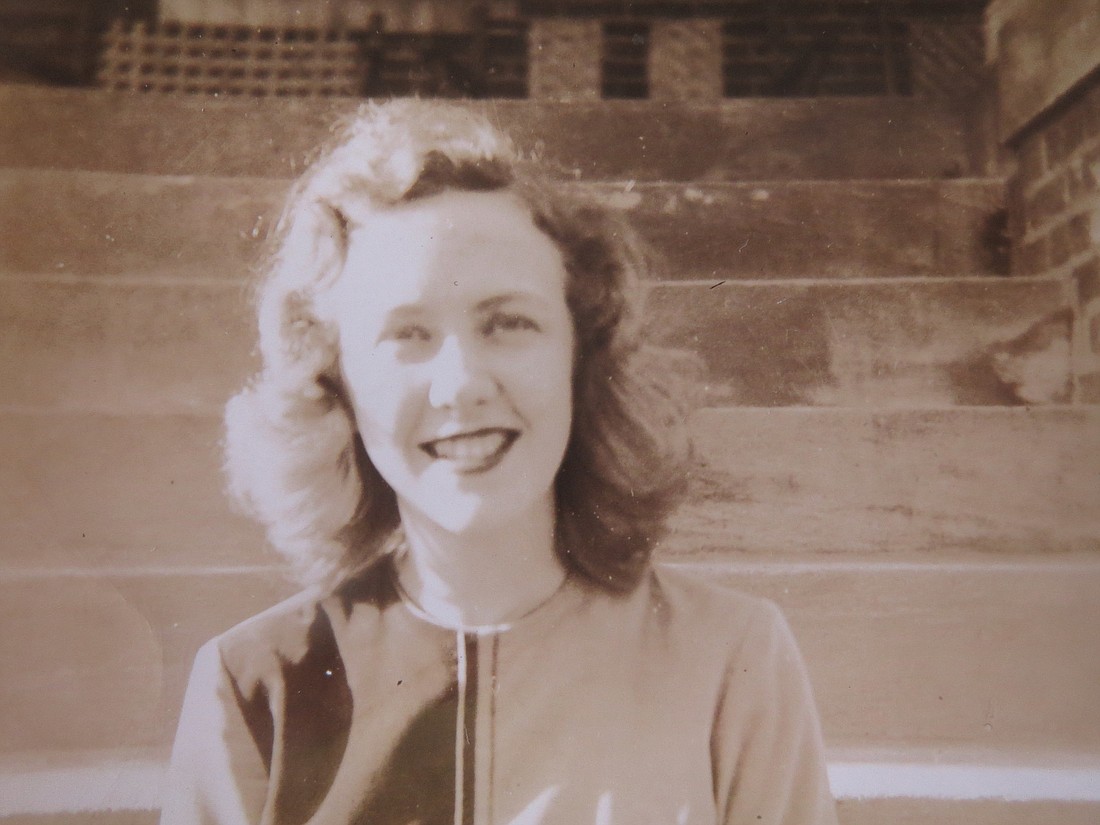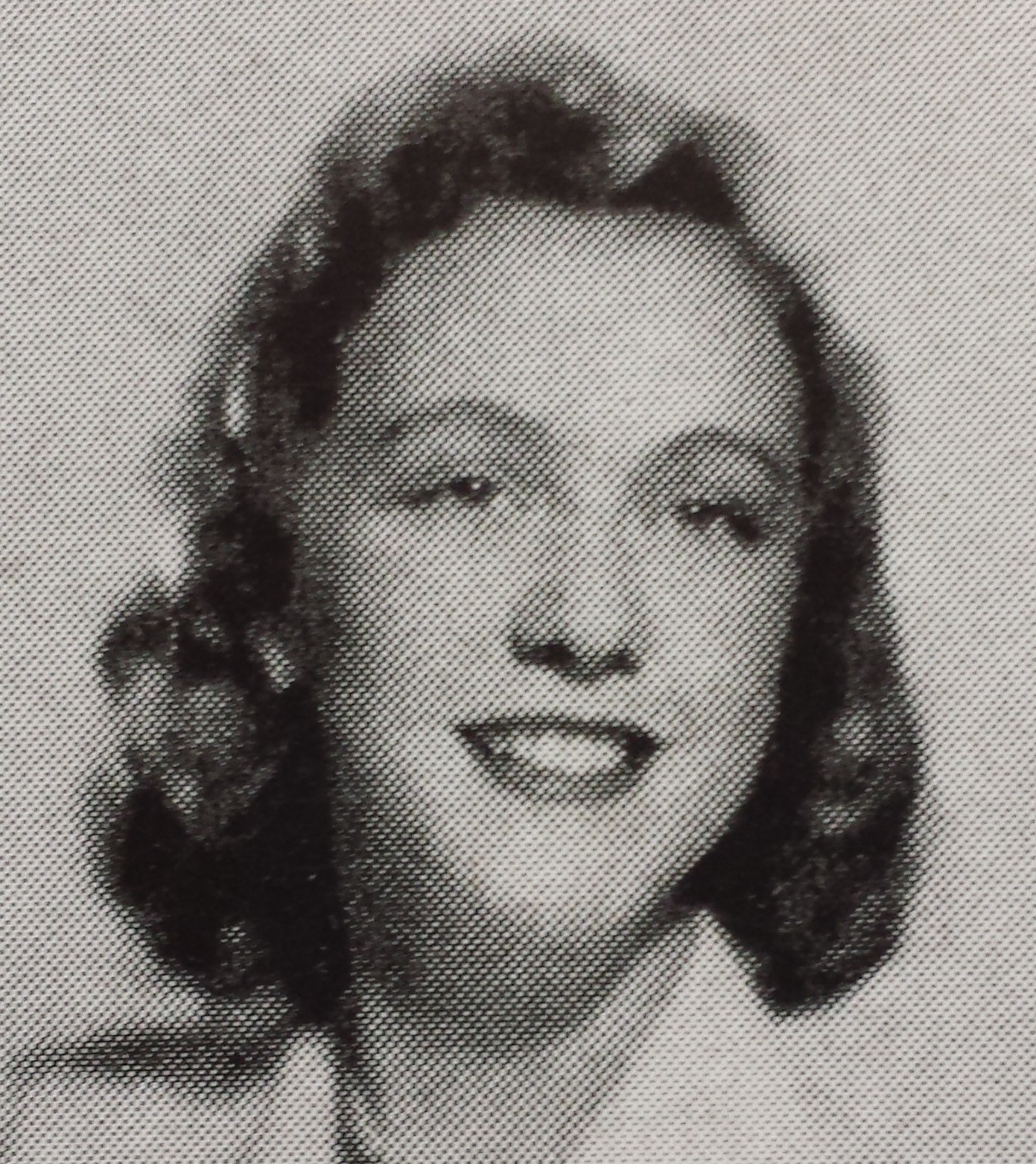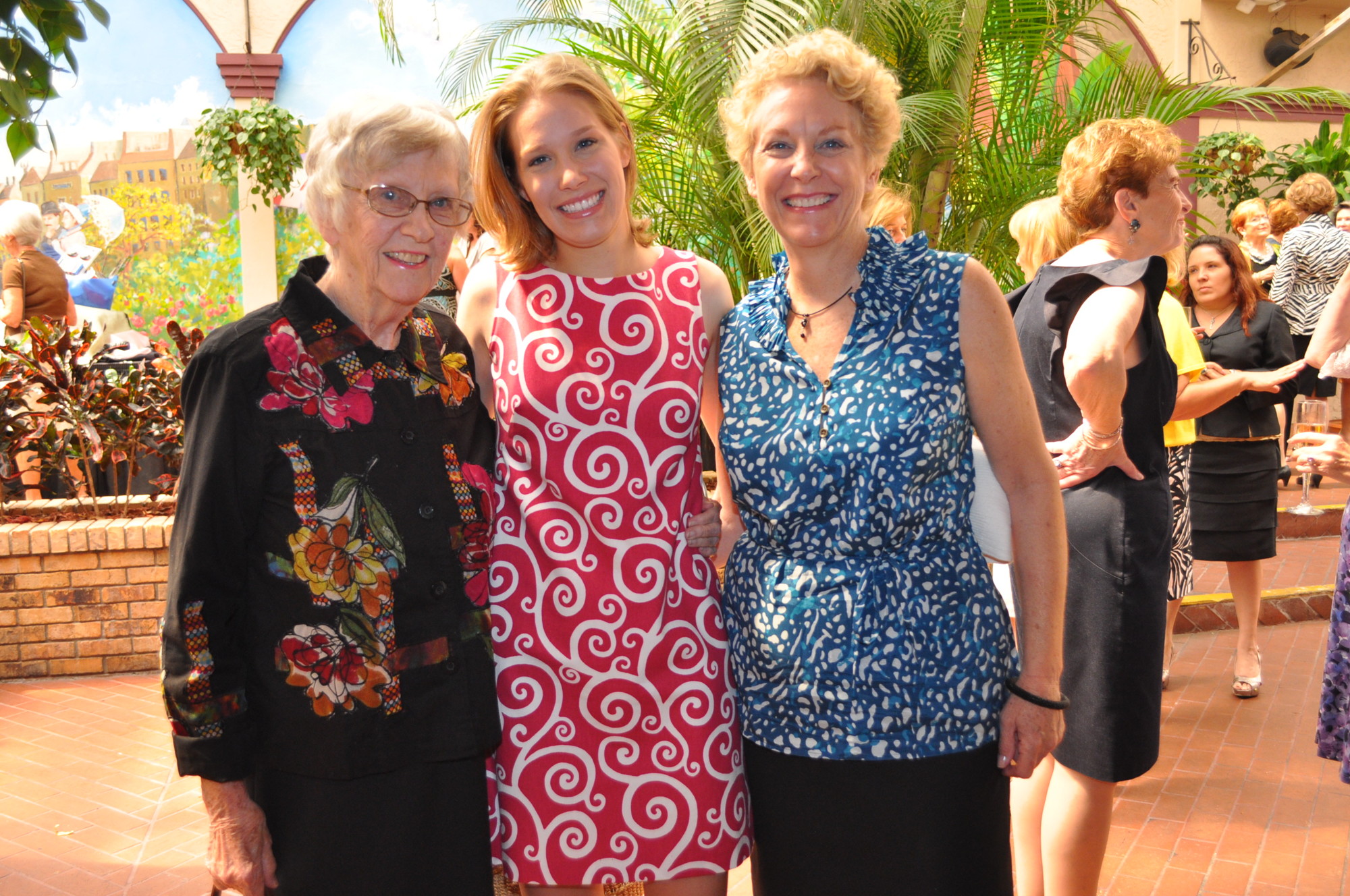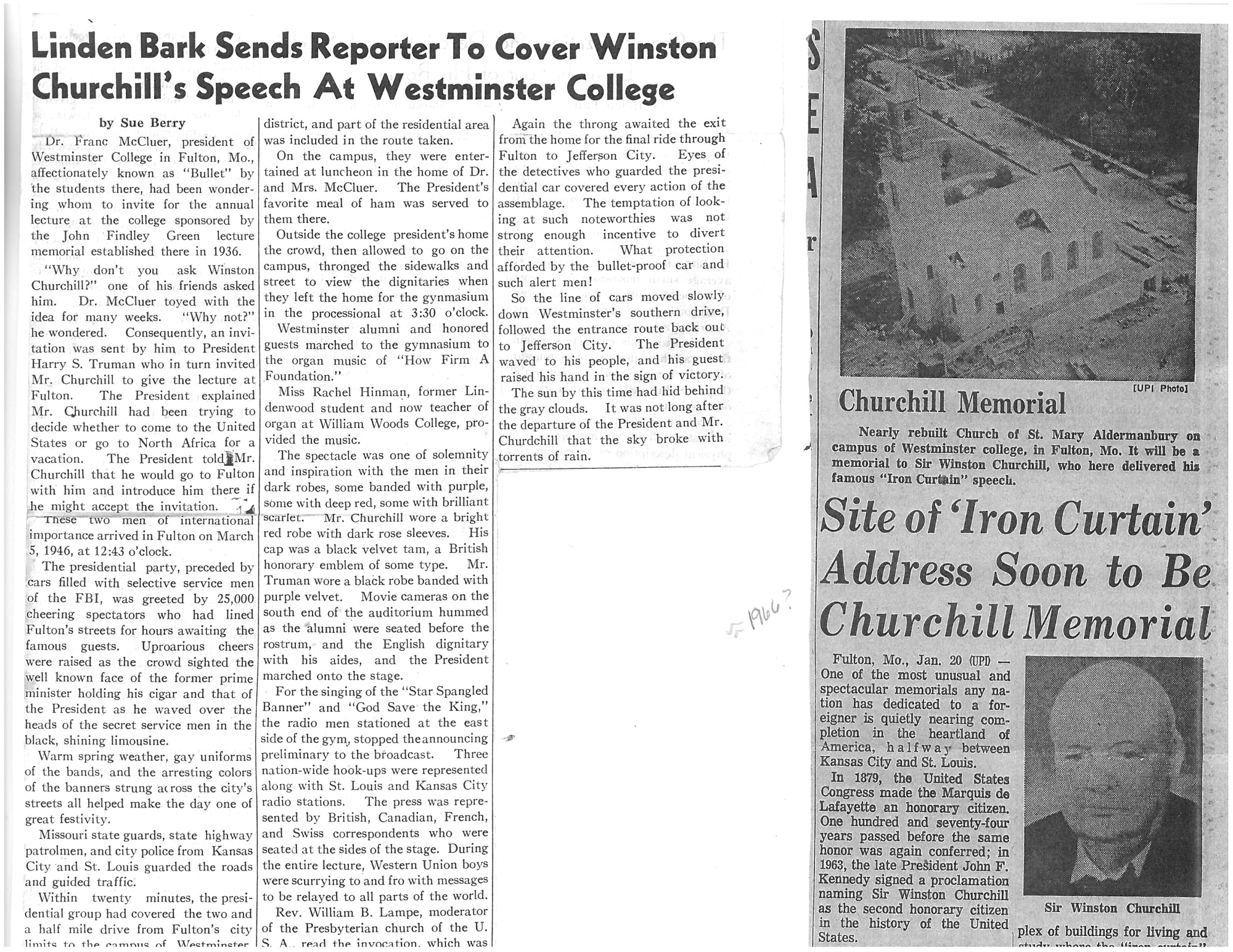- June 6, 2025
-
-
Loading

Loading

The headline in the small college newspaper blared: “Linden Bark Sends Reporter To Cover Winston Churchill’s Speech at Westminster College.”
Part of it was true. A Lindenwood College student attended the famous 1946 speech by the former British prime minister at Westminster College. She heard “The British Bulldog,” as he was known, utter his now-famous 18 words: “From Stettin in the Baltic to Trieste in the Adriatic, an iron curtain has descended across the continent.”
But Suzanne Berry Bissell wasn’t sent by the student newspaper. That’s fake news, she said. She was there because her aunt thought she would enjoy the occasion, and she only wrote about the speech to share the experience with her family. Bissell showed the paper to her college English teacher, who turned the report in to the student newspaper, the Linden Bark.

Bissell was a sophomore at Lindenwood College (now Lindenwood University) in St. Charles, Mo., when she left to visit her aunt on Saturday, March 2 — the weekend before the speech. Her aunt, Rachel Hinman, taught the organ at nearby William Woods College (now William Woods University) in Fulton, so she traveled from St. Charles with family friends headed to a fraternity event at Fulton’s Westminster College.
The day before the speech, Hinman told Bissell she was getting her tickets to hear Churchill speak. Hinman was scheduled to perform at the event, so she got her niece a spot in the press box at what would become the biggest affair to ever take place in tiny Fulton.
“It was a spectacle,” Bissell said. “I honestly couldn’t believe it was happening. I was kind of in a daze. I was like, ‘What am I doing with all these really advanced reporters, what am I doing sitting in the press box?’”
She doesn’t remember many details of that day, but Bissell’s observations are forever remembered through her descriptive 22-paragraph chronicle of the historical affair.
The story began with some background on how Churchill, the former prime minister of the United Kingdom, was asked to make the speech by Franc McCluer, then-president of Westminster College. She described the grand entrance made by Churchill, President Harry Truman and Secret Service contingent as they passed the 25,000 spectators who had lined the streets many hours before in anticipation of their arrival.
“Uproarious cheers were raised as the crowd sighted the well-known face of the former prime minister holding his cigar and that of the President as he waved over the heads of the secret service men in the black, shining limousine,” Bissell wrote.

She described everything from the banners hanging in the city’s streets to what Truman was served by McCluer and his wife for the pre-speech luncheon — his favorite meal of ham. She told the story of a crowded gymnasium where men clad in dark-colored robes took to the stage and listened to the “Star Spangled Banner” and “God Save the King” while “movie cameras hummed” and Western Union boys ran around relaying messages across the world.
The content of the speech itself, however, was confined to a single paragraph. She wrote of how Churchill warned about Russia’s bid for power and urged for a continued British and American alliance. The second half was reserved for her thoughts on Churchill, who she called a “short, pudgy, sympathetic, elderly gentleman.” She was responding to a line in his speech: “I am only what you see here.”
When asked why her story focused on the experience of being in that gymnasium rather than on the content of the speech, the answer was simple.
“I was so young — I was kind of naive about that stuff,” Bissell said. “I didn’t know how important it was. I really truly didn’t.”

As a college student, Bissell didn’t have an interest in politics. What she found fascinating about the event was the grandness of the procession and the recession, the throngs of people in the crowd and the way the sunlight streaming through the window seemed to make a direct path toward the speaker. Bissell, like most Americans, did not know on that day in Fulton, Mo., that Churchill would become the first political figure to see the coming of the Cold War.
Bissell felt out of place surrounded by journalists from all over North America and Europe. She wasn’t a reporter, and she never intended for her story to be published. She just loved to write, and when her aunt gave her the opportunity to document the event for her loved ones, she seized the once-in-a-lifetime opportunity.
Churchill’s speech, she said, “changed everything for everyone in this country for many years to come.”
“It changed our lifestyle, what our values were — it changed the world at that time,” she said.
The message of that speech is still relevant, she said, especially with President Donald Trump in office.
“I remember it because I think what he (Churchill) said still applies today,” she said. “There is an iron curtain. Russia is a very aggressive country. I think, believe it or not, everything holds true today. Now I’m getting too political, but that’s the truth.”